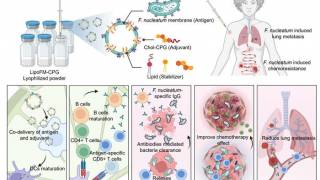65.7% of Scottish Men Embrace Cancer Prevention Vaccination

Since the human papillomavirus (HPV) vaccine first became available to men in Scotland, about 65.7 percent have been immunized.
The new data from the Information Services Division (ISD) Scotland shows that about 14,000 eligible men attended a health clinic between July 2017 and June 2019.
Of those men, 9,146 received at least 1-dose of the HPV vaccine called Gardasil. The majority of these men were between the ages of 20 to 29.
The Gardasil (Gardasil 4vHPV) vaccine protects against HPV, which is a sexually transmitted virus that causes the majority of cervical cancer cases in women. Additionally, the HPV virus causes cancers of the genitals, throat, and mouth.
Earlier in 2019, researchers found the routine vaccination of Scottish girls aged 12-13 years with the bivalent Gardasil HPV vaccine led to a dramatic reduction in pre-invasive cervical disease.
Furthermore, there was evidence of clinically relevant herd protection apparent in unvaccinated women.
Jamie Rae, chief executive of the Throat Cancer Foundation, said in a HearldScotland article on October 29th, “We have campaigned vigorously to raise awareness of the link between throat cancers and HPV. This is why we call for the HPV vaccine to be made freely available to all ages and genders of society and promoted through all GP practices.”
“We believe the costs will result in long-term savings of lower HPV related cancers diagnosis.”
The Gardasil HPV vaccine has been offered to girls in Scotland since 2008.
From the academic year 2019-20, every S1 pupil in Scotland, regardless of gender, can get the HPV vaccine for free, says NHS Health Scotland.
The HPV vaccine is normally given as a series of two injections into the upper arm.
Pupils who get their first vaccination dose over the age of 15 will need to have three injections.
The HPV vaccine doesn’t protect women against all other types of HPV that cause cancer, which means cervical screening (smear tests) should begin at 25 years of age in Scotland.
The HPV vaccine is not recommended for pregnant women and should not be given during pregnancy. If a woman is found to be pregnant after starting the vaccination series, she should wait to finish the series until she is no longer pregnant.
The Gardasil vaccine has been given safely to over 80 million people in 84 countries. It meets the high safety standards needed for it to be used in the UK.
Recent HPV vaccine news from the USA
- October 26, 2019 – a study’s findings suggest that the detection of Human Papillomavirus (HPV) in the oral cavity is not uncommon in sexually active, female teenagers in New York City. Overall, HPV DNA was detected in the oral rinse samples of 6.2 percent of these women.
- September 26, 2019 – a study reported the long-term immunogenicity of the 2-dose HPV vaccine was similar to the 3-dose vaccination schedule. These researchers compared the immunogenicity of 2-dose (2D) versus 3-dose (3D) schedules of the quadrivalent HPV vaccine up to 10 years after the first vaccine dose.
- September 16, 2019 – a cancer prevention study shows that physicians' communication practices have improved, boosting HPV vaccinations. Since the 2-dose HPV vaccination schedule came out for adolescents 11 to 12-years-old, overall acceptance has increased.
There are 3 HPV vaccines that are now being marketed in many countries throughout the world - a bivalent, a quadrivalent, and a nonavalent vaccine.
All 3 vaccines are highly efficacious in preventing infection with virus types 16 and 18, which are together responsible for approximately 70 percent of cervical cancer cases globally.
The US Centers for Disease Control and Prevention (CDC)’s Advisory Committee on Immunization Practices recommends HPV vaccination with Gardasil 9 for all boys and girls at age 11 or 12, and for people through age 26 if they weren’t already vaccinated.
However, some adults age 27 through 45 years who are not already vaccinated may decide to get the HPV vaccine after speaking with their doctor about their risk for new HPV infections and the possible benefits of vaccination.
HPV vaccination in this age range provides less benefit, as more people have already been exposed to HPV.
Those who start the HPV vaccine series on or after their 15th birthday, need 3 shots given over 6 months, says the CDC.
>> Gardasil 9 vaccine discounts <<
Cancer news published by Vax-Before-Travel
Our Trust Standards: Medical Advisory Committee
























